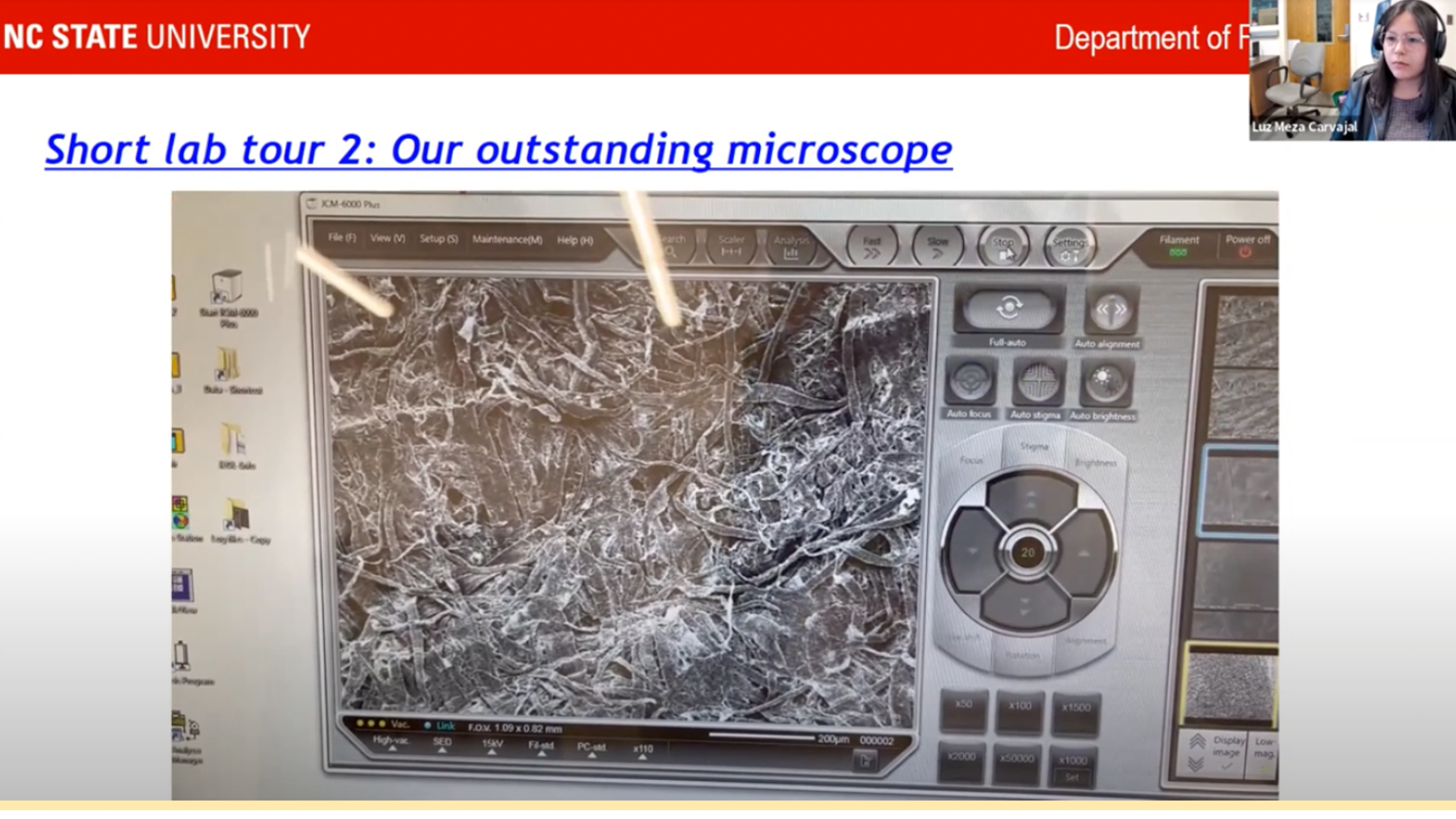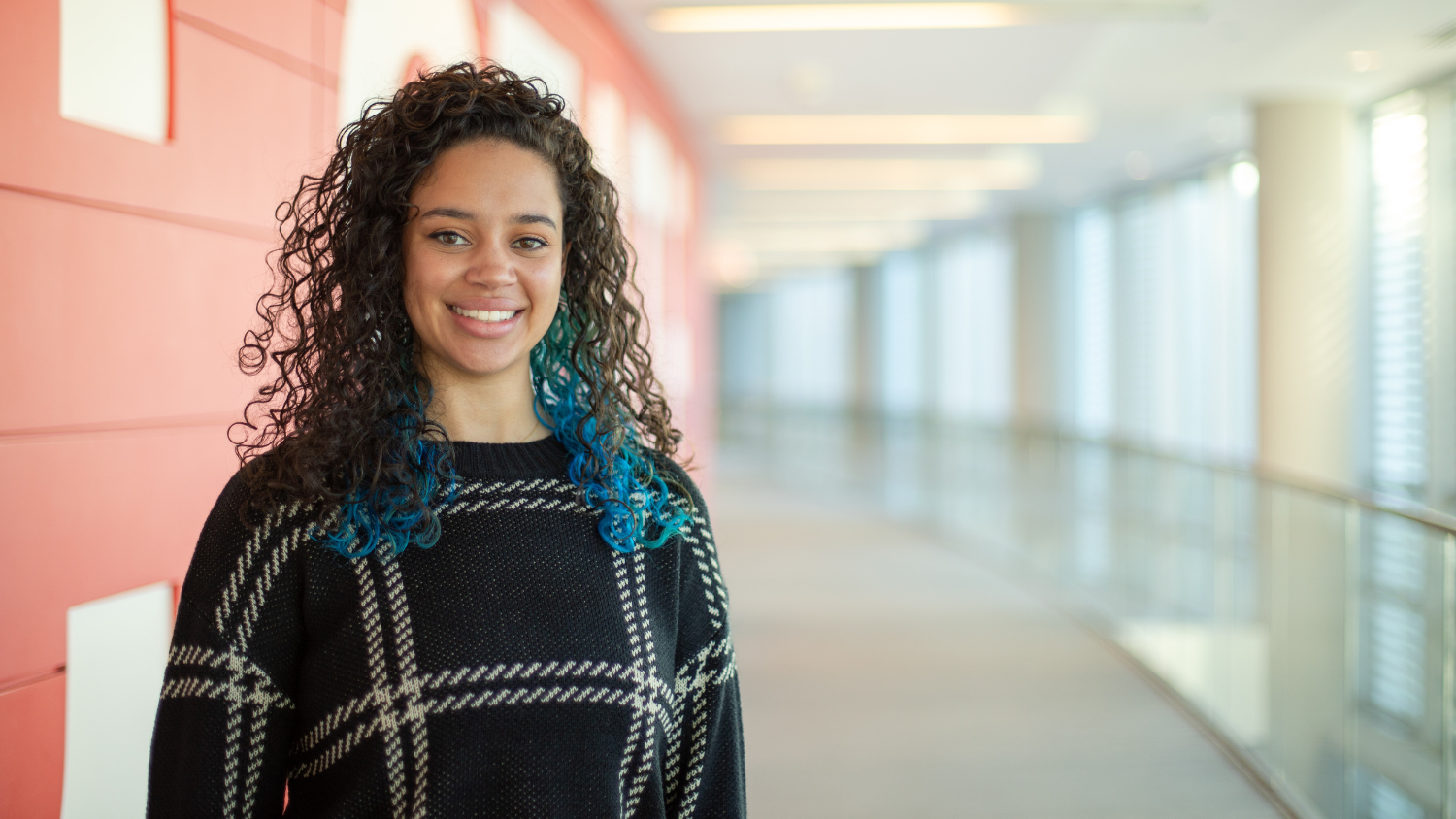Professor Meg Blanchard to Help Students Explore Bioeconomy Careers through Work on $2.25M Department of Energy Grant-funded Project

NC State College of Education Professor Meg Blanchard is continuing her efforts to develop the American bioeconomy through her work on a new $2.25 million project funded by the U.S. Department of Energy.
Blanchard is a co-principal investigator on the “Sargassum and Hurricane Waste Biomass for Aviation Fuel and Graphite (SWAG)” project, which aims to develop sustainable biotechnologies, including aviation fuel and graphite for lithium ion batteries, sourced from solid waste streams in the United States. Professor Sunkyu Park, with the NC State College of Natural Resources, is the project’s principal investigator.
“It has been wonderful to partner on projects with the College of Natural Resources. Through a number of projects, we have been able to bring some of the science and industry developments and career explorations to teachers and into classrooms, to help students consider new career pathways,” Blanchard said.
The technologies developed through SWAG, Blanchard said, will reduce waste in landfills and the number of graphite mines and synthetic graphite plants needed, while also increasing the number of sustainable bioeconomy jobs.
“There are also several social equity impacts of this project. Removal of sargassum, seaweed, from beaches will help coastal communities that depend on access to open water, such as for fishing, shipping and tourism. Community resources that are used now for beach cleanup could be directed to community development,” she said. “In addition, the commercialization of the technology developed on this project will create new jobs in the affected communities.”
Blanchard’s work on the SWAG project will build on her ongoing, USDA-funded Sustainable Bioproducts and Bioenergy Program work with Richard Venditti, Elis Signe Olsson Professor in the College of Natural Resources.
Through that project, the team recruited 18 rural high school science teachers and 20 undergraduate students to take four newly developed courses on the bioeconomy. Undergraduate students were placed in paid summer industry internships and teachers received summer professional development, which included lab activities, and ongoing support to engage their high school students in bioeconomy experiences and career explorations in the classroom.
Through the SWAG project, Blanchard’s role will focus on three main outreach goals.
First, she will work with graduate students in order to prepare them to visit the classrooms of the North Carolina teachers who participated in the Sustainable Bioproducts project, as well as to virtually visit classrooms in Colorado via Zoom. During these visits, graduate students will speak about their research, show them their labs, and answer questions high school students may have about the bioeconomy field and their career pathway.
Next, she will work to coordinate field trips for rural high school students to visit NC State or the University of Colorado at Colorado Springs, with a focus on working with students from underserved schools and first-generation college students. During these visits, students will visit research laboratories on campus and experience campus life, with the goal of helping them envision themselves as future college students.
Finally, Blanchard will work with teachers and students to engage in classroom career exploration related to potential bioeconomy or STEM careers and learn the specifics about how to move forward on college and career pathways.
The development of bioeconomy jobs, and future workers to fill those positions, is important to the state of North Carolina, which is a large agricultural and forest-based region, Blanchard said.
“Since many of these jobs are emerging, students would likely not be familiar with them. Given that rural North Carolina has lagged in several socioeconomic indicators, there is a great potential to engage our students in the growing needs of an emerging bioproducts and bioenergy industry,” she said. “This way, students can consider pathways in careers that are close to home with many well-paying jobs that advance some of the sustainability goals of our country.”
- Categories:


